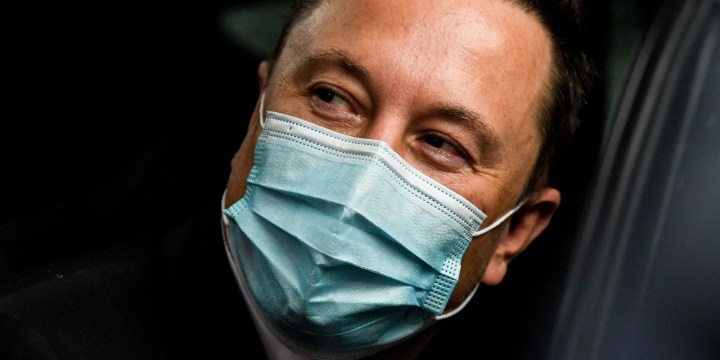BUSINESS MAVERICK OP-ED
Elon Musk’s satellites start delivering the internet

Starlink now has 900 satellites in low Earth orbit for its beta test for users in the northern US and southern Canada.
It was obviously a coincidence that the announcement of a planned 4G network on the moon and the beta testing launch of Starlink, Elon Musk’s satellite internet service, happened in the same week.
Either of these fantastical developments is good news on its own, but they are even more profound considering how diverse the requirements are for this kind of connectivity.
The US may be the world’s last remaining superpower, but it has a broadband problem in its northern states. In this vast, sparsely populated and largely rural region, distances between farms, towns and hamlets are huge, but the people who live there are just as eager for internet coverage as those in the cities.
Starlink now has 900 satellites in low Earth orbit for its beta test for users in the northern US and southern Canada.
The idea of providing internet connectivity from space was part of my science fiction-infused childhood, and it clearly was part of Musk’s. It’s a logical conclusion: if providing connectivity for rural areas is not cost effective for other technologies such as fibre cables or cellular masts, then it makes sense to beam the signal down from low-orbit satellites.
The problem has been twofold. Bouncing data up and down from a conventional high-orbit satellite is very expensive, and so is the base station needed to receive it.
But if you lower the orbit of the satellites, it becomes cheaper and the ground station equipment doesn’t have to be as powerful or as expensive. Additionally, if you put up many more satellites, you get vastly wider coverage – allowing for a much bigger potential customer base.
Starlink’s beta service will cost $99 a month but it requires $500 upfront for the base station equipment: a tripod, Wi-Fi router and terminal to connect to the satellites.

STARLINK satellites train. (Photo: YouTube)
Dubbed by Starlink as the “Better Than Nothing Beta” so that no one hopes for too much, it will offer speeds of between 50 megabits per second (Mbps) and 150Mbps.
That really isn’t bad at all. My home fibre in Johannesburg, through Vumatel and Vox, for instance, is 100Mbps up and down. I often joke it makes me part of the internet 1% – especially in Africa. It costs R1,200 a month, or $73 at this week’s rate.
SpaceX told its customers in an email last week that, “as you can tell from the title, we are trying to lower your initial expectations”. But it also warned: “Expect to see data speeds vary from 50Mb/s to 150Mb/s and latency from 20ms to 40ms over the next several months as we enhance the Starlink system. There will also be brief periods of no connectivity at all.”
I’m sure those rural recipients won’t mind. The Reddit Starlink community page is filled with excited posts, including people who say they are buying sturdier, more expensive equipment.
Think of the economic impact of giving people in such underserviced areas the kind of internet speeds we see in the cities. Imagine the potential if we could deliver that to the vast parts of our own continent that are unreachable with fibre and terrestrial infrastructure. Smallholder farmers could sell their harvest via smart online platforms such as the Mastercard Farmer Network. It allows farmers to deal with buyers without any middlemen while helping to educate them and increase their yields.
Another remarkable aspect, possibly unintentional, is that the satellites might not be subject to regulations in the countries they serve. Imagine an uncensored internet available over Zimbabwe or North Korea. Anyone in a restrictive regime could read any news, not only state-owned media, which would lift one of the many veils used by tyrants to enslave their people.
Perhaps more intentionally, not only does that internet connection give its users all the joys of the internet, but free calling and messaging — something still tied to a phone line, albeit mobile, for so many people in Africa and the developing world.
The sooner the “Better Than Nothing Beta” rolls out around the world, the better. DM/BM
Shapshak is publisher of Stuff (Stuff.co.za) and Scrolla.Africa.




















 Become an Insider
Become an Insider
I’m surprised that it has taken this long for satellite internet to become available, especially in US & Canada. There was a satellite offering in the Middle East in the late 1990s when the normal internet offerings were very slow and heavily restricted with government firewalls.